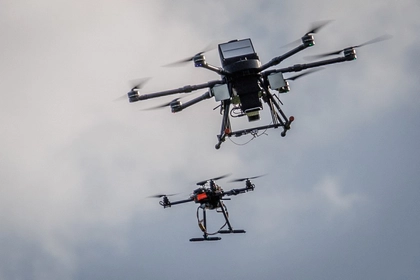It might seem that a new era has begun in Russia – the era of a weak Vladimir Putin and a strong Aleksandr Lukashenko. At least that is the view you get from Belarusian television news where it was reported that Lukashenko himself offered to stop the rebellion and, in one day of telephone conversations with Wagner chief Yevgeny Prigozhin, saved Putin’s Russia from sliding into civil war.
In the first days after the suddenly aborted march of Prigozhin’s private army on Moscow, no one in Russia contradicted these statements. However, the other day Russian journalists voiced the version that it was Putin who instructed Lukashenko to negotiate with Prigozhin.
JOIN US ON TELEGRAM
Follow our coverage of the war on the @Kyivpost_official.
The exact details of the agreements with Prigozhin are not known. In a comment Prigozhin gave to his supporters a few days later, he said that the “march of justice” – as he calls his uprising – was provoked by his conflict with Defense Minister Sergei Shoigu and Chief of General Staff Valery Gerasimov and by the desire of the Defense Ministry to physically and legally destroy the Wagner private military company (PMC), but that Lukashenka had guaranteed Wagner would remain intact and would be able to continue activities with the same legal status as other mercenary armies enjoyed in Russia.
The strangest thing about all this is, perhaps, that according to Russian law, Wagner PMC cannot have any legal status, because the existence of mercenary groups is prohibited by law in the Russian Federation.

Russia Tries to Sabotage Moldova’s European Ambitions as It Did for Georgia and Belarus
Russian laws clearly do not apply to Wagner PMC, just as they do not apply to dozens of other private military companies, including that of Gazprom, which, in early February, announced the creation of its own private army “to protect gas pipelines and other assets.”
The number of private armies in Russia has already reached 30. Among them there is even one PMC, registered as a public organization for the patriotic upbringing of youth – “ENOT.” Members of this PMC are also fighting in Ukraine, Syria, and other countries.
The more private armies there are in Russia, the more likely there will be clashes among them and between the private armies and Russia’s national army, as happened during Prigozhin’s “march” on Moscow via Rostov and Voronezh. Wagner’s air defense shot down six helicopters and one military transport plane of the Russian army command, killing 12 Russian military pilots. Up to 20 Russian soldiers were also killed in armed skirmishes.
Since the Wagner march on Moscow, in cemeteries where soldiers of the Russian army and Wagnerites are buried near each other, someone has removed the Wagner PMC flags from the poles above the graves. However, the relatives of dead Wagner fighters may be even more upset about the closure of Wagner offices which used to give out large sums in compensation to families when a Wagner soldier was killed.
After Lukashenko’s triumph as the man who stopped the civil war, Prigozhin’s private jet has been flying regularly and unhindered between Belarus and St. Petersburg, the city where Prigozhin befriended Putin more than 20 years ago.
Is it possible that Prigozhin is transporting furniture from his St. Petersburg apartment to his new one in Minsk? Or is he wrapping up his business and transporting cash to Minsk? During searches in and around his offices following the mutiny, FSB officers found a minivan full of boxes of cash. Prigozhin then confirmed that it was his money. How many more of these “purses on wheels” he has is not known.
The Wagner fighters now in Minsk may think that they will simply have a new base, from which they will be allowed to fly to Syria, Mali, the Central African Republic, Sudan, and other countries where the Wagner PMC has long been involved in internal conflicts. Moreover, in the past, they also flew to Africa via Minsk.
However, it seems to me that there may be some surprises awaiting these fighters in Belarus. It’s no secret that sections of the Belarusian military leadership would rather stay out of the war in Ukraine. With the help of blackmail or very high pay, Lukashenko might think he has his own small, but well-trained army, ready to carry out any task that is unpopular with the Belarusian military.
On the other hand, Putin has often expressed dissatisfaction with the speed of Belarus’ unification with Russia. If Putin demands it, the Wagner forces could be ordered to seize Minsk.
The location of Prigozhin and his fighters in Belarus is also already creating tension on the border of Belarus with Poland and Lithuania. Depending on the number of Wagner fighters eventually stationed in Belarus, the level of threat to neighboring NATO member states could be very high and require additional defense spending from the governments of Poland and the Baltic States.
Today, many journalists are sure that Putin will not forgive Prigozhin and that the commander and owner of the Wagner PMC will be killed sooner or later. The head of Ukrainian military intelligence, Kyrylo Budanov, has even said that the Russian FSB had already received an order to eliminate Prigozhin. This is possible, of course. After all, it was not for nothing that Putin said the Wagner PMC was fully funded from the Russian budget, and not from Prigozhin’s pocket. De facto, this suggests that the real “Prigozhin” is Putin, and the Prigozhin we know is a hired manager who simply went out of control – like so many managers who have recently begun to fall out of the windows of hospitals, expensive apartments, and even Spanish villas and Thai hotels.
So, it is quite possible that sooner or later Prigozhin will be faced with a choice: to seize Belarus or fall out of the window. What is more, Prigozhin will be aware that, even if he does as he is told by Putin, it does not mean that the “window of negative opportunities” will be closed forever.
The views expressed in this opinion article are the author’s and not necessarily those of Kyiv Post.
You can also highlight the text and press Ctrl + Enter






